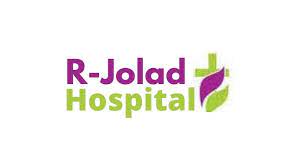The Federal Government, after a meeting of the Minister of Education and states’ commissioners for education, directed that the 2014/2015 school session should begin on September 222 (yesterday). The directive broke the deadlock induced by the outbreak of the deadly Ebola Virus Disease (EVD) in the country last July. The initiall the resumption date of third week of September. The postponement had had sparkedoff a wave of reactions with stakeholders in the private schools coming out heavily against it and calling for a reversal. Also, the new date drew criticism from doctors, activists, Nigerian Union of Teachers and civil society groups, who alleged that the government was stampeded into taking the decision due to the strong influence of some powerful school proprietors.
Ordinarily, one would wonder why the FG and private school owners would be in a hurry to reopen schools while containment effort of EVD is still on in Rivers State. Isolated cases are still being reported in other parts of the country (Ile-Ife for example), while over 400 Ebola contacts are still being monitored. Hence, one would want to ask whether it wouldn’t have been better to defer the resumption date to safeguard the pupils, students and teachers. But the Minister of Health, Professor Onyebuchi Chukwu, has confidently said the virus has been contained. “Ebola is no longer in the streets anywhere in Nigeria”, he has gleefully stated. He added that his ministry was working closely with the Federal Ministry of Education to ensure that institutions having returnees from outside Nigeria were subjected to tests to ensure that they do not have the disease.
The Minister of Health has not convincingly demonstrated why the resumption date should be brought forward because nothing concrete has been done to curtail the spread of the disease. It must be noted that children usually have little resistance to managing personal problems unlike adults. This was the bone of contention of the Nigerian Medical Association that decried the school resumption directive, reasoning that all schools should rather remain shut till all those under surveillance for the disease have been certified free. The NMA was of the opinion that the resumption of schools could further be shifted till December or early next year warning that with the spread of Ebola to any school, it would become catastrophic, a position also taken by the House of Representatives, which directed its Committee on Education to probe the controversies that trailed the fixing of a new resumption date. The Nigerian Union of Teachers is gearing up for strike action over the early resumption date. The union said it would not allow any of its members to teach until it was scientifically and medically proven that the country was free of the scourge.
No doubt, Nigeria has been commended for the way it has handled the containment of Ebola with minimal casualty. It is hoped that this feat will not be rubbished by the hasty decision to begin the new school session. The health minister should let us know what he has been able to put in place in facts and figures should the virus go wild again as schools resume. And if government insists on enforcing the new resumption date, states should ensure that all safety measures are put in place by installing dispensary, providing adequate water facilities, sick bay to manage unforeseen contingencies. School authorities should watch out for strange behaviour amongst pupils and generously provide hand sanitisers to their pupils before allowing them into their premises. They should also have thermal thermometers to constantly check the temperatures of pupils at regular intervals and train desk officers to handle suspected cases.
As a perennial crisis and feature of most public institutions, government should ensure that adequate public toilets are provided in addition to carrying out intensive safety assessment to ensure proper monitoring of health-related issues. With these provisions in place, it will be easy to convince the people that the government is truly capable of curtailing the spread of the disease. Above all, parents and teachers should be better prepared for hands-on engagement in inculcating good hygienic practices necessary for the eradication of the outbreak of Ebola and other communicable diseases, bearing in mind that prevention is always better than cure.
Otherwise, schools should be shut till the last suspected cases are disposed off and patients are certified to be free of the virus by shifting the resumption date further. Though painful, this would rather help the government to have adequate time to follow the standard procedure and put the necessary machinery in place for containing the deadly virus going by the disclosure that it could take between six to nine months to completely contain the virus. With the peculiar nature of our large population, therefore, rushing the students back to school at a time the schools are not prepared to receive them is a sure recipe for an otherwise avoidable calamity. This should not be allowed.
ABUJA: Training Schedule for Basic Life Support BLS, Pediatric Advanced Life Support (PALS), Advanced Cardiovascular Life Support ACLS, First Aid, CPR, AED
PORTHARCOURT: Training Schedule for Basic Life Support BLS, Pediatric Advanced Life Support (PALS), Advanced Cardiovascular Life Support ACLS, First Aid, CPR, AED
LAGOS: Training Schedule for Basic Life Support BLS, Pediatric Advanced Life Support (PALS), Advanced Cardiovascular Life Support ACLS, First Aid, CPR, AED


.jpg)

.jpg)
